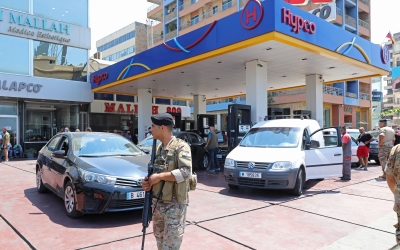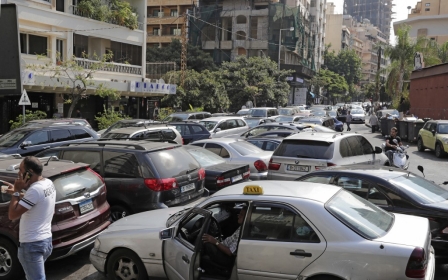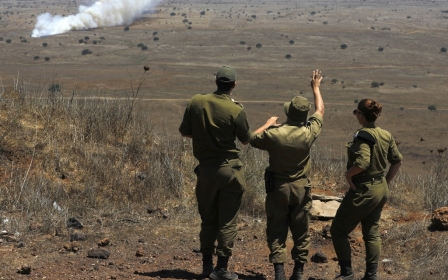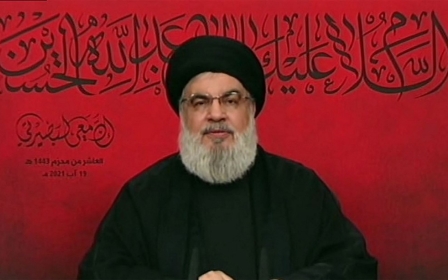Lebanon: Huge hike in fuel prices following latest subsidy cut
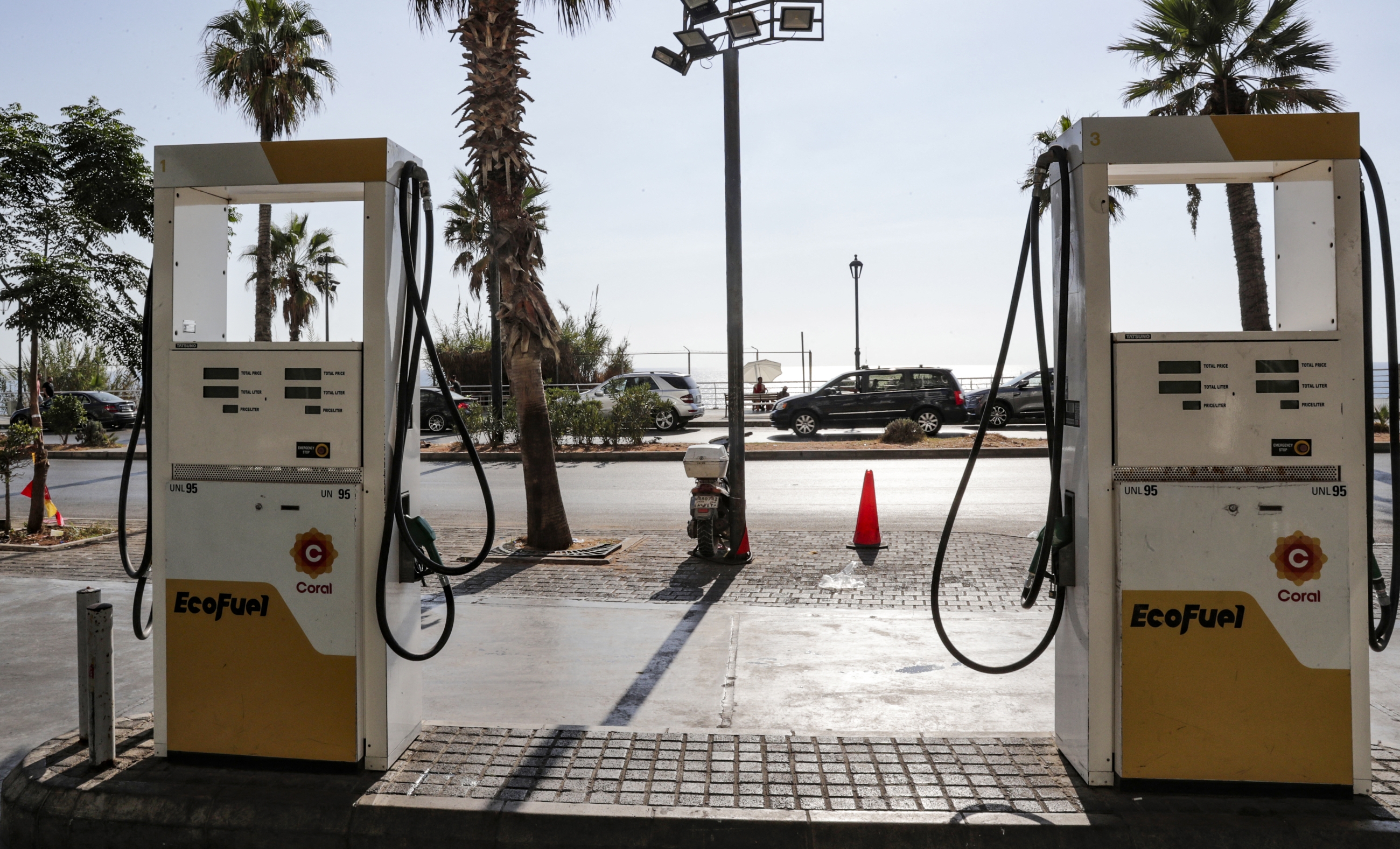
A new subsidy cut in Lebanon has pushed up fuel prices in the country, putting further pressure on the country's citizens as they struggle to survive a collapsing economy.
Official figures showed fuel prices soared by up to 70 percent on Sunday, with the cost of hydrocarbon fuels in Lebanon having now roughly tripled in the two months since the central bank started decreasing its support for imports.
The latest cut, which is expected to cause price hikes for other key commodities, comes as the Mediterranean country is mired in one of the world's worst economic crises since 19th century.
Dire shortages have seen Lebanon's people struggle to find enough fuel to drive to work or power backup generators during near round-the-clock electricity cuts.
Motorists have become caught up in long lines outside the petrol stations that have remained open.
New MEE newsletter: Jerusalem Dispatch
Sign up to get the latest insights and analysis on Israel-Palestine, alongside Turkey Unpacked and other MEE newsletters
The refusal of many petrol stations to sell what they do have resulted in the army being deployed this month to seize hoarded fuel and distribute it to the needy.
Frustrations have boiled over in recent weeks, with scuffles repeatedly breaking out over scarce fuel, leaving at least three people dead.
Last weekend the explosion of a fuel tank in the north of the country killed at least 30 people.
Surging poverty rates
The cost of 98- and 95-octane petrol rose on Sunday by 67 and 66 percent, respectively, from 11 August, according to prices posted by the National News Agency.
The cost of mazout, a widely used petrol derivative, soared by 73 percent over the same period.
The price of a cooking gas canister shot up by more than 50 percent.
All three types of fuel cost roughly three times what they did on 23 June.
The increases come at a time when more than three-quarters of the population now lives in poverty.
Most people in Lebanon earn wages in the local currency, the pound, which has lost more than 90 percent of its value against the US dollar on the black market since 2019.
The central bank on Saturday agreed to support fuel imports at an exchange rate of 8,000 pounds to the dollar, up from a rate of 3,900 to the greenback set during a first de facto subsidy decrease in June.
Before that the Bank of Lebanon had provided importers with the foreign currency at the official rate of around 1,500 to the dollar.
The central bank said earlier this month it could no longer afford to provide importers with dollars at any preferential rate, but leaders on Saturday reached a compromise with the 8,000 rate.
Middle East Eye delivers independent and unrivalled coverage and analysis of the Middle East, North Africa and beyond. To learn more about republishing this content and the associated fees, please fill out this form. More about MEE can be found here.


